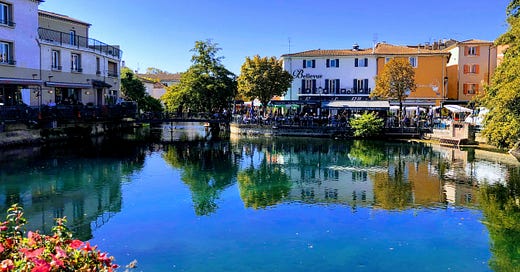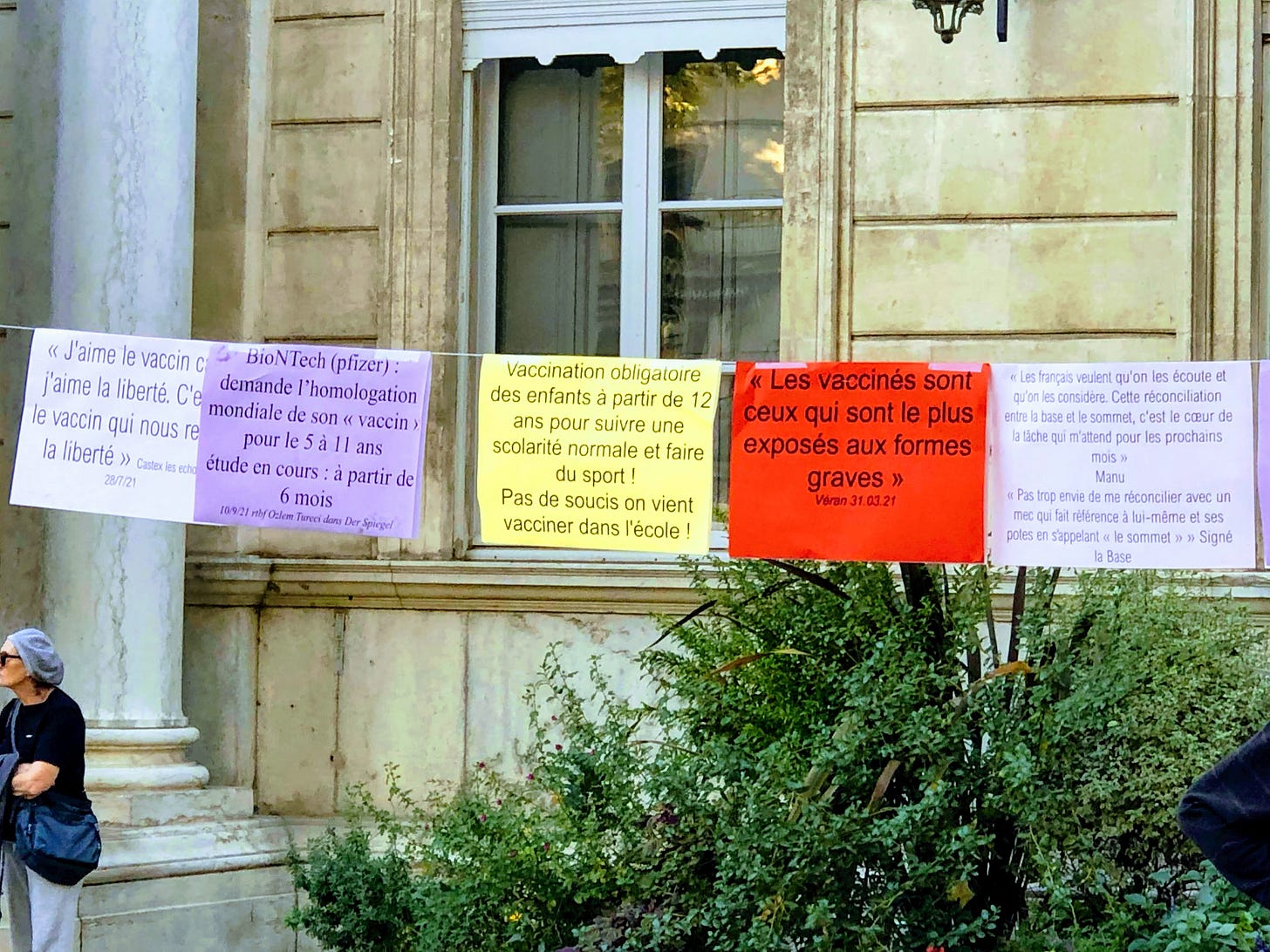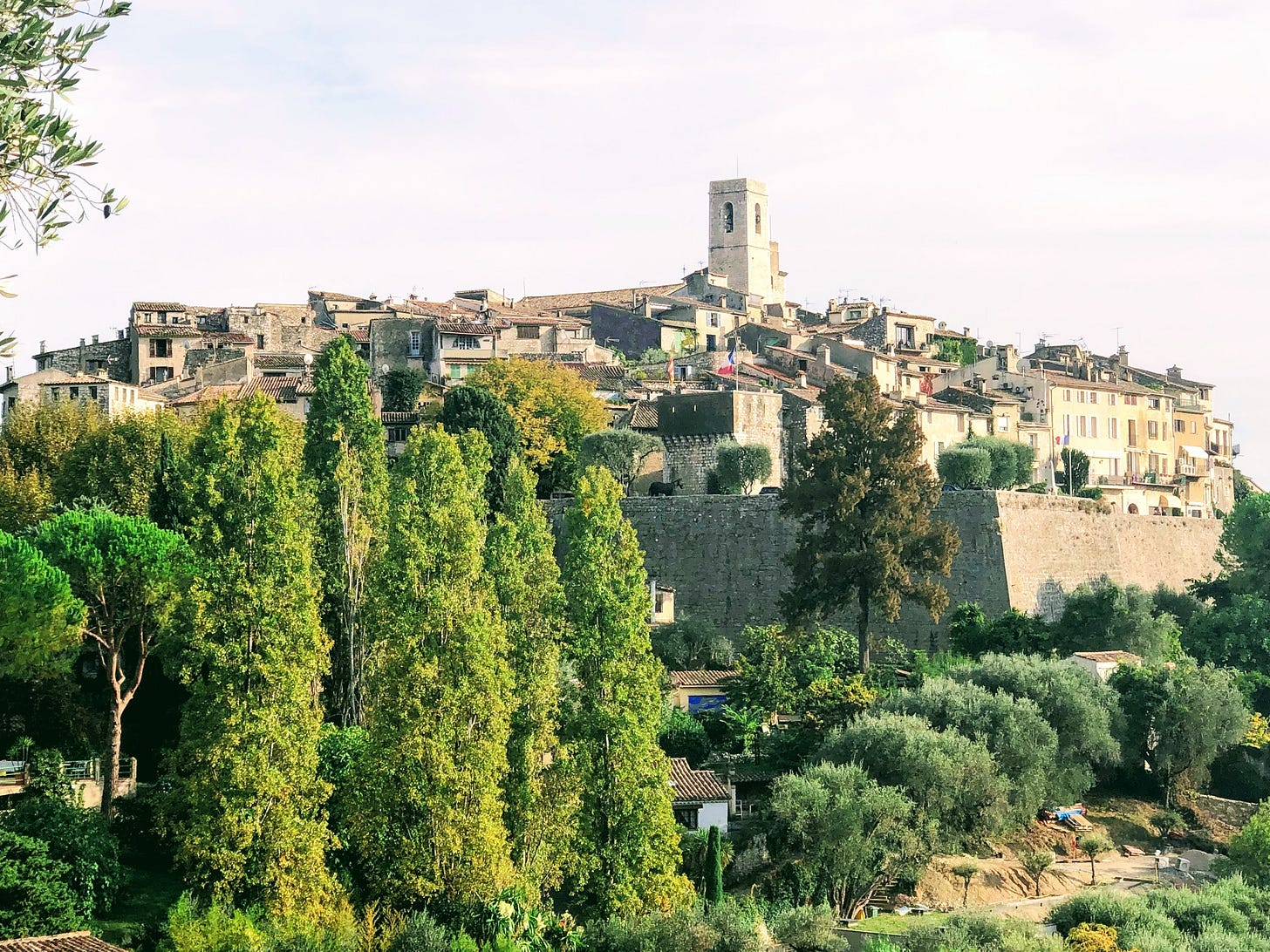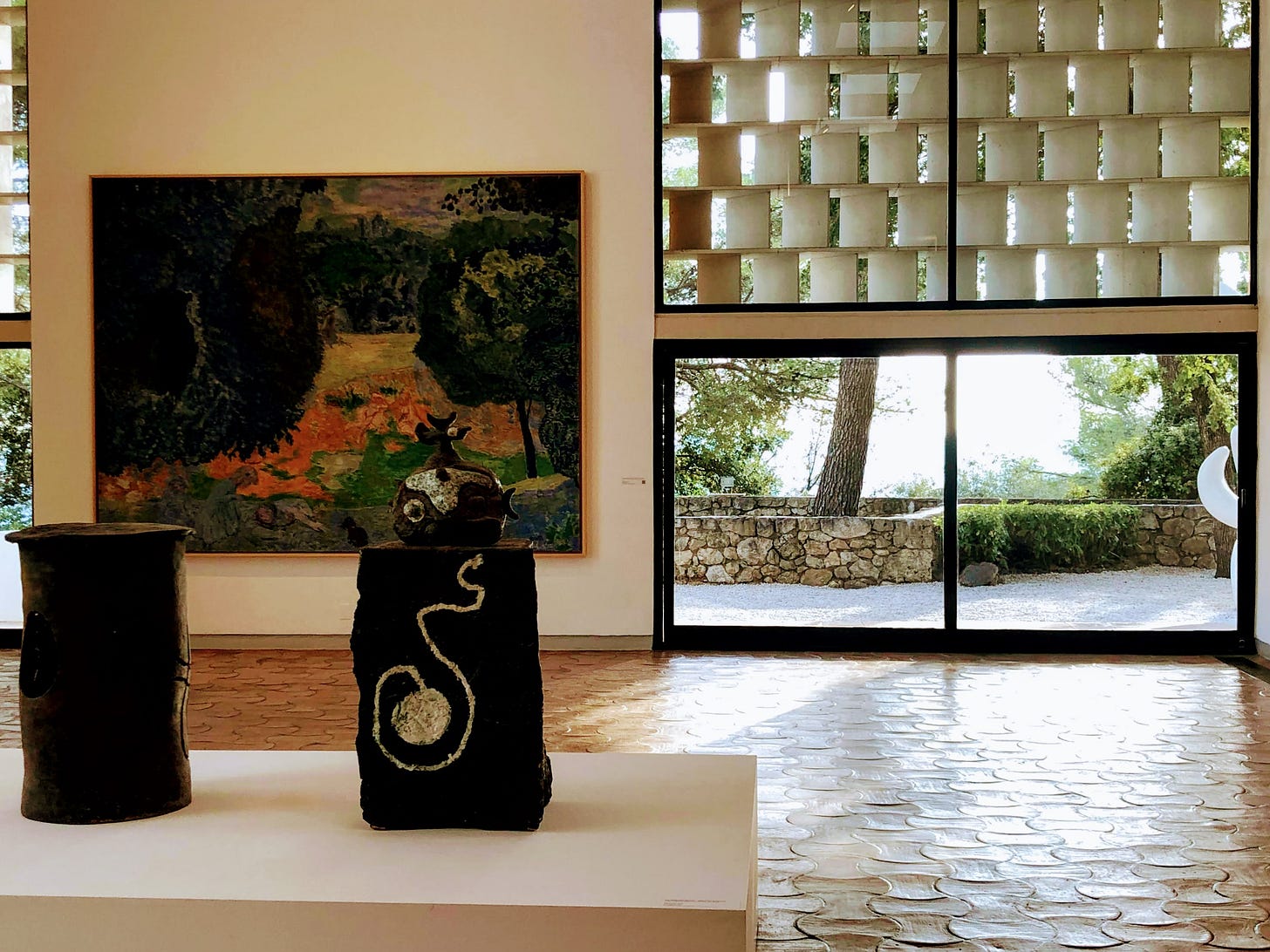Apologies if this is a repost for you, but when I sent it yesterday, it didn’t go through to most people. Hopefully, this one will work! Again, apologies if you are getting this a second time.
We spent a few days in Avignon and surrounding towns, and it was interesting to see how various Covid measures were enforced outside a major city like Nice. Basically, the same situation applies, at least on my observation: the pass sanitaire requirement is applied randomly, while people are extremely good at following masking requirements indoors and on public transport.
And just so you know: some places will refuse you admission if you can’t present a pass sanitaire, as we found out in a Nice restaurant when a friend’s phone had gone flat and so couldn’t open the app. We asked to use a charger, but they didn’t have one for an iPhone, they said, and when I asked if it was okay for our friend to stay anyway, that we could vouch for the existence of her pass, we were met with a very firm no. We went somewhere else, and they didn’t ask for the pass.
It will be interesting (one word for it) to see how things work in Australia now that Sydney and Melbourne are opening up.
I’ve been reading French media a bit more closely and regularly of late, and there is constant debate about the imposition of the pass sanitaire.
What I didn’t realise is that the pass was only able to be introduced because France is technically in a state of emergency. This was instigated back in 2015, after the terrorist attacks in Paris, and then was reinstated to help deal with Covid. Which means that France has been under this condition for more than three of the last six years.
Late last week, the State Council (Le Conseil d'Etat) released a report examining this situation and you get a sense of their concerns by the fact that they used a quote from Camus at the head of the report:
« Ils se croyaient libres et personne ne sera jamais libre tant qu’il y aura des fléaux »
“They believed themselves free and no one will ever be free as long as there are plagues. "
And they make observations like this (I am relying on Google translate and my own cleaning up):
We can no longer deny the risks induced by too frequent a recourse to states of emergency. Risks, of course, for rights and freedoms which are sometimes considerably reduced […] . But there are also risks for the health and vitality of our democracy, because placing oneself under an exceptional regime always amounts on the one hand to bypassing, in the name of urgency and necessity, the traditional democratic channels, in particular Parliament. But on the other hand [we need] to say two things: that we have not succeeded in anticipating the crises which overwhelm us and that we are not able to face them with the means at our disposal in normal times.
They nonetheless ratified an extension of the state of emergency.
Of course, the looming Presidential election is playing into all this, and one media report points out the similarity between this extension and the timing of the original 2015 emergency provisions:
It is difficult not to be struck by the similarity between the state of health emergency and the state of terrorist emergency. The latter was also renewed in November preceding the 2017 presidential election and until July. Then, the new majority once again extended it, using the moment to write and pass the law strengthening internal security and the fight against terrorism (SILT) of October 30, 2017 which ended the state of urgency but permanently added the main measures to our common law.
Again, I will be interested to see how all this plays out in Australia, because as supportive as I am of various health measures, serious concerns remain in how we balance necessary protections against the requirements of a free society. We have an obligation to watch closely what governments (and media) do.
To whit—and in further repudiation to that ridiculous Bevan Shields’ article I mentioned last week—this piece in The Guardian:
It is not yet clear where the UK public sits on this continuum and some push back at the notion that there is an acceptance of the current situation.
“The idea that everyone is accepting the new normal is very dangerous,” said Prof Stephen Reicher, a psychologist at the University of St Andrews.
According to Reicher, the government has been “systematically normalising” the UK’s current rate of infections.
“They’ve been acting like this is inevitable, seeming relaxed about infections going up,” he said…
The media also plays a role in setting a perception of what is “normal”, according to Reicher. “[Research shows] that the media changes virtually nobody’s mind,” he said. “But it changes people’s belief about what others think.”
[…]
“The current death rate is equivalent to over 40,000 people a year dying of Covid. This is not normal,” he said.
To finish, as usual, some more photos, per requests.
Stay well, everyone.















I was reading today about the vax certification situation in the Netherlands for folk vaccinated outside the EU who haven't yet got official residency papers. Very messy, especially if you don't live in Utrecht. It reminded me of your travails.
https://dutchreview.com/news/international-vaccination-registration-without-dutch-bsn/
Not much to report from my bit of Sydders on the COVID front, mainly because I haven't really come out of hiding yet. It seems that if you, like me, have a an initial in your Medicare card that isn't in the MyGov records, the system goes berko and you can't get the digital certificate to attach to your NSW app. It's screwed up because of course it is. The solution is talking to an actual person on the helpline. Maybe the one who sorted you out. I'm regirding my loins to be put on hold for another lifetime. Fa la la.
Love the pics!
MM
Love your beautiful photos, Tim! You're transmitting the travel bug to me & it's delightful to see France through your eyes because, in reality, I probably wouldn't be comfortable to travel OS for some time yet.
It's interesting to read about the issues facing France regarding the pass sanitaire & I suspect we'll be facing something similar in NSW sooner rather than later. The media seem to be in some sort of parallel universe as far as recognising & reporting on potential ongoing issues arising from Covid transmission with children back at school this week & the great unvaxxed free to spread disease with the greatest of ease from December 1. Look forward to your Italian reports.